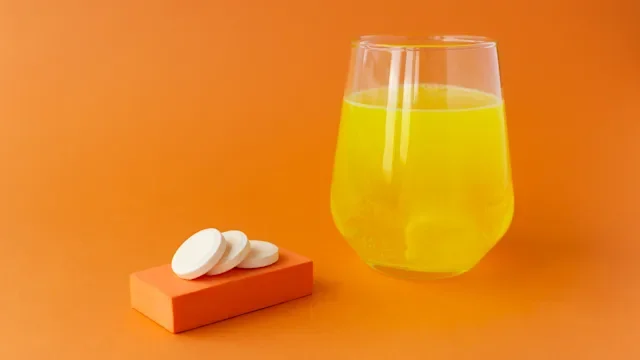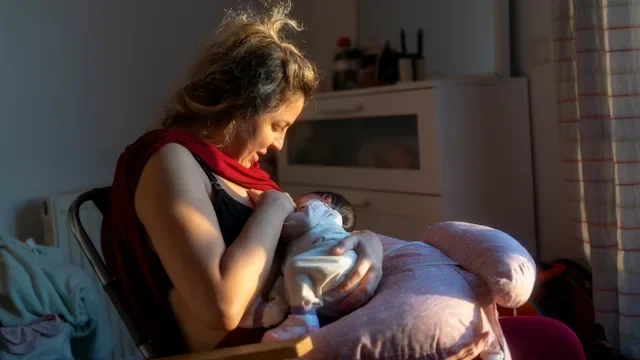Key takeaways:
Alcohol goes into human milk just as it goes into the bloodstream, but that doesn’t mean you need to “pump and dump.”
Occasional and light alcohol use while breastfeeding is likely safe. But regular, heavy use has risks.
If you do decide to have alcohol while breastfeeding your baby, make sure to take steps to keep your baby safe — including never co-sleeping with your baby after drinking.
After avoiding alcohol throughout pregnancy, many new parents may be eager for a glass of wine or cold beer. Most people know that drinking alcohol during pregnancy can be dangerous for the unborn baby. But over 6 in 10 women report using alcohol while nursing, and they may not be aware that this also comes with some risks.
Read on to learn about what research shows about drinking alcohol while nursing — and how to make sure your baby stays safe.
Is it safe for mothers to drink alcohol while nursing?
There’s limited research on the effects of drinking alcohol while nursing. The CDC states that “not drinking alcohol is the safest option for your baby,” while noting that having 1 standard drink per day is likely safe for your baby.
Search and compare options
A standard drink means a 12 oz beer, a 5 oz glass of wine, or a 1.5 oz shot of distilled spirits such as gin, vodka, or whiskey. If you do decide to drink some wine while breastfeeding, there are some steps to take to make sure you’re keeping your baby safe.
How does alcohol affect a breastfed baby?
Alcohol can affect a breastfed baby in several ways. The short-term effects can include:
Sleep disturbances, such as waking up more frequently and experiencing changes in REM sleep
Problems with feeding
The long-term effects of regular alcohol exposure in breast milk are still unknown. But some studies have raised concerns that drinking while breastfeeding is associated with long-term problems with a child’s growth and development.
In one study, children who had been exposed to breast milk of moms who drank alcohol were more likely to have behavioral and cognitive problems at age 7. But more studies are needed, since it’s possible that this link was related to alcohol exposure during pregnancy.
Alcohol may also impair an adult’s ability to safely care for a baby. To reduce this risk, never co-sleep with your baby after having alcohol.
How do you know if your baby is affected by the alcohol in your breast milk?
You probably won’t be able to tell. It can be hard to know exactly how the alcohol you drink is affecting your breastfed baby — both in the short and long term.
Things to look out for include:
Increased fussiness
Changes in how much they sleep (either more or less)
Deeper sleep than usual
Decreased feeding
That’s why it’s safest to avoid drinking alcohol while breastfeeding. Or, if you do drink, limit yourself to 1 standard drink per day.
How long does alcohol stay in breast milk?
The time that alcohol stays in breast milk depends on how much alcohol you drink and how much you weigh.
In general, alcohol can be detected in breast milk for 2 to 3 hours after drinking 1 alcoholic drink. Alcohol from 2 drinks can be detected in breast milk for 4 to 5 hours afterward. Keep in mind that the level is highest within 1 hour after drinking.
How long after drinking can you breastfeed?
To keep your baby safe, experts recommend that you wait 2 hours per alcoholic drink before nursing your baby. As the alcohol is cleared from your blood, it will also be cleared from your breast milk.
Taking steps to lower your blood alcohol level also lowers the alcohol level in the milk you make. So eating food, drinking water, or sometimes simply waiting it out will help.
But pumping does not remove alcohol from breast milk — only lowering blood alcohol content can do that.
Do you have to ‘pump and dump’ after drinking?
“Pump and dump” — pumping out breast milk after drinking alcohol and throwing it away instead of saving it for your baby — is not necessary. Here’s why. Alcohol in human milk is cleared at the same rate as alcohol in the blood. So, while pumping milk removes that milk from your body, it does not clear alcohol from your blood or lower how much alcohol is in the new milk your body makes.
Waiting is the best way to keep your nursing baby safe after you drink alcohol. This gives your body time to clear the alcohol from your bloodstream and your milk supply.
But pumping and dumping may help you avoid engorgement. Signs of this are breasts that feel warm, heavy, hard, and full. And consistent breastfeeding can help prevent it. So, if you have several alcoholic drinks and there’s still alcohol in your breast milk, you might choose to pump and dump once. This lets you keep up your supply and avoid engorgement while waiting for alcohol to clear from your body. Most parents will feed a baby from previously pumped milk or formula when they do this.
Can drinking alcohol help stimulate breast milk production?
You may have heard that beer can help boost milk production. Barley (an ingredient in beer) does help stimulate milk production, but no studies show that beer helps with milk production. In fact, some studies have shown that alcohol decreases the let-down of milk and may decrease milk production.
But there are many other sources of barley in foods and in supplements that may help with milk production.
How to keep your baby safe if you have a drink
If you decide to drink some wine while nursing, here are some considerations to keep your baby safe:
Newborns under 8 weeks can’t metabolize (process) alcohol as well as older babies. So avoid alcohol for the first 8 weeks of your baby’s life.
Beyond that, if you do choose to drink, limit your alcohol intake to 1 standard drink or less per day when nursing.
Drink alcohol with food and water to help lower your blood alcohol level (and the alcohol in your milk).
If you do drink alcohol and breastfeed, wait for 2 hours (per drink) before nursing your baby.
Never co-sleep with your baby if you have consumed alcohol.
The bottom line
Drinking alcohol while nursing is likely safe in small amounts, but there are some risks to be aware of. If you decide to drink some alcohol, there are precautions to take to make sure your baby stays safe. This includes limiting your intake to 1 alcoholic drink or less, waiting at least 2 hours to nurse, and never co-sleeping with your baby after alcohol use.

Why trust our experts?



References
Centers for Disease Control and Prevention. (2022). Alcohol and public health.
Centers for Disease Control and Prevention. (2022). Alcohol.
Centers for Disease Control and Prevention. (2023). Alcohol use during pregnancy.
May, P. A., et al. (2016). Breastfeeding and maternal alcohol use: Prevalence and effects on child outcomes and fetal alcohol spectrum disorders. Reproductive Toxicology.
Mennella, J. A., et al. (2005). Acute alcohol consumption disrupts the hormonal milieu of lactating women. The Journal of Clinical Endocrinology and Metabolism.
National Institute of Child Health and Human Development. (2022). Barley. Drugs and Lactation Database (LactMed®).
National Institute of Child Health and Human Development. (2023). Alcohol. Drugs and Lactation Database (LactMed®).
National Institute on Alcohol Abuse and Alcoholism. (n.d.). What is a standard drink?
Noble, L., et al. (2012). Breastfeeding and the use of human milk. Pediatrics.
The American College of Obstetricians and Gynecologists. (2023). Breastfeeding your baby.
Wilson, J., et al. (2017). Alcohol consumption by breastfeeding mothers: Frequency, correlates and infant outcomes. Drug and Alcohol Review.














